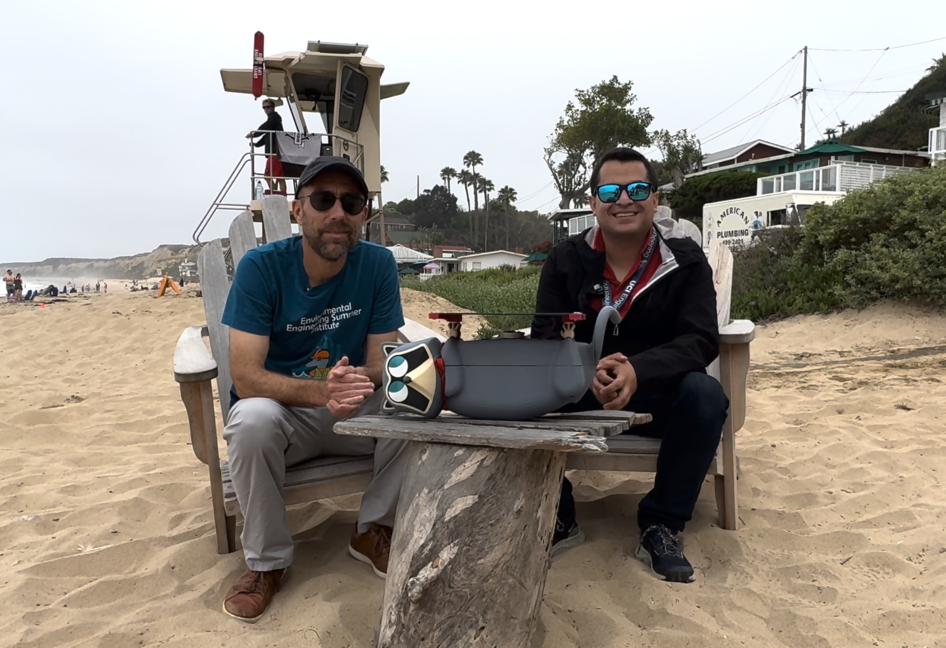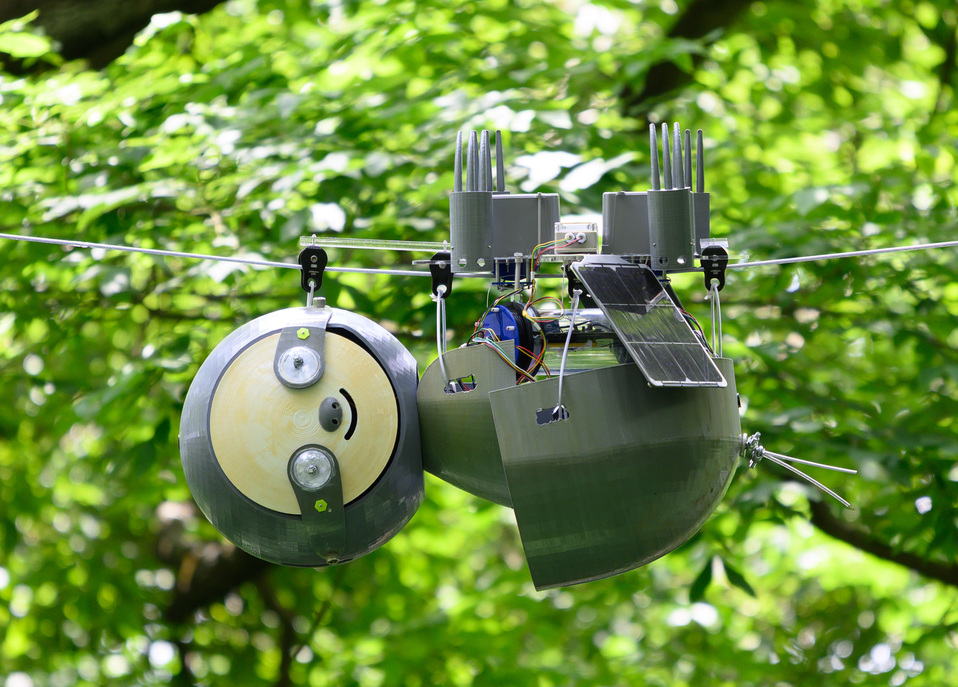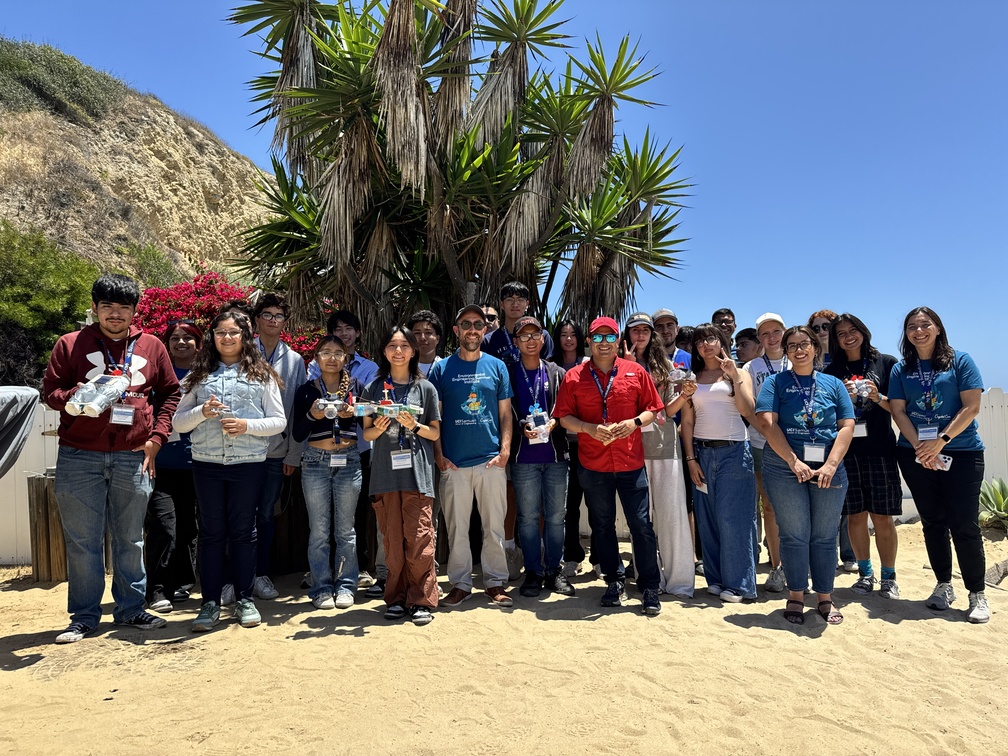High School Students Learn About Environmental Robots at UCI-Crystal Cove Summer Institute

July 2, 2025 - “Robots are coming. We need your help to make sure they make the world better,” said Magnus Egerstedt, dean of the UC Irvine Samueli School of Engineering to students attending the UCI-Crystal Cove Environmental Engineering Summer Institute.
Egerstedt, an award-winning roboticist, spoke to the high school students about robotics and artificial intelligence trends. He explained the nuance of making robots likable without triggering the uncanny valley, when humans feel uneasy about a humanoid’s appearance. Japan, for example, has led the world in designing humanoid robots to take care of the elderly. They look like a person but not quite. “If they look too much like people, we don’t like them,” he said.
He also alleviated fears of their power by explaining their limits such as their inability to walk robustly. “Walking is really hard,” Egerstedt said. “We’re basically preventing ourselves from falling all the time as we walk on sand, upstairs, or on gravel, and some of us can walk in high heels.”
Even generative AI has its limits in advancing robotics due to their unreliability. “ChatGPT is known to hallucinate and make things up,” Egerstedt said. “You can’t trust it yet with life and death decisions.”
Egerstedt’s expertise is creating environmental robots that are sent into nature to do good. He created the solar-powered SlothBot which hangs on a wire under tree canopies. Like a sloth, it barely moves as it collects data from nature and agriculture. It blends in so well that squirrels sit on it.

He wanted to deploy a SlothBot to Crystal Cove State Park to monitor the causes of sand erosion, a major problem that’s causing California’s coastline to shrink. But Crystal Cove Conservancy CEO Kate Wheeler wanted a robot that looked like the animals that come to the park, like raccoons. So the UCI Robot Ecology Lab engineered the RaccoonBot which will be installed at Crystal Cove on July 10.
Postdoctoral researcher Efraín Méndez, who led the RaccoonBot project, also spoke to the students and said he was inspired to study robotics because he thought "Iron Man" was cool. He explained the RaccoonBot’s design process — how it evolved from a robot with a creepy smile to becoming a cute solar-powered robot that’s able to withstand erosion, wind and other natural forces. Méndez said the great thing about environmental robots is that they’re minimally invasive and able to monitor hard-to-reach places.
The students enjoyed learning about the eco-friendly robots. “The RaccoonBot was cute,” said Vivian Dang, a Santiago High School senior who wants to pursue a STEM career. “I liked how they walked us through the steps that they took for each design.”
The students had the opportunity to create and race their own solar-powered robotic boats too with a few parts: sticks, bottles, tape, motor and solar panels. “Creating a robot that floats in the water has been a great experience,” said Santiago High School junior Elena Ocampo. “That was really fun as I was able to create memories with people from our school and other schools.”
She also loved learning about how robots can help humans and protect the ecosystem. “I love everything about environmental engineering,” said Ocampo, who wants to study environmental engineering and architecture.

The Environmental Engineering Summer Institute is a week-long day camp for high school students that features lectures and activities led by UCI professors on robotics, clean energy, clean water and coastal engineering. It’s a collaboration between the UCI Stacey Nicholas Office of Outreach, Access and Inclusion, the UCI Samueli School of Engineering and Crystal Cove Conservancy.
“We want our students to know how they can meet the challenges of our world,” said Christopher Olivares Martinez, UCI assistant professor of civil and environmental engineering. The institute aims to inspire young people to help build a more sustainable world.
- Natalie Tso

